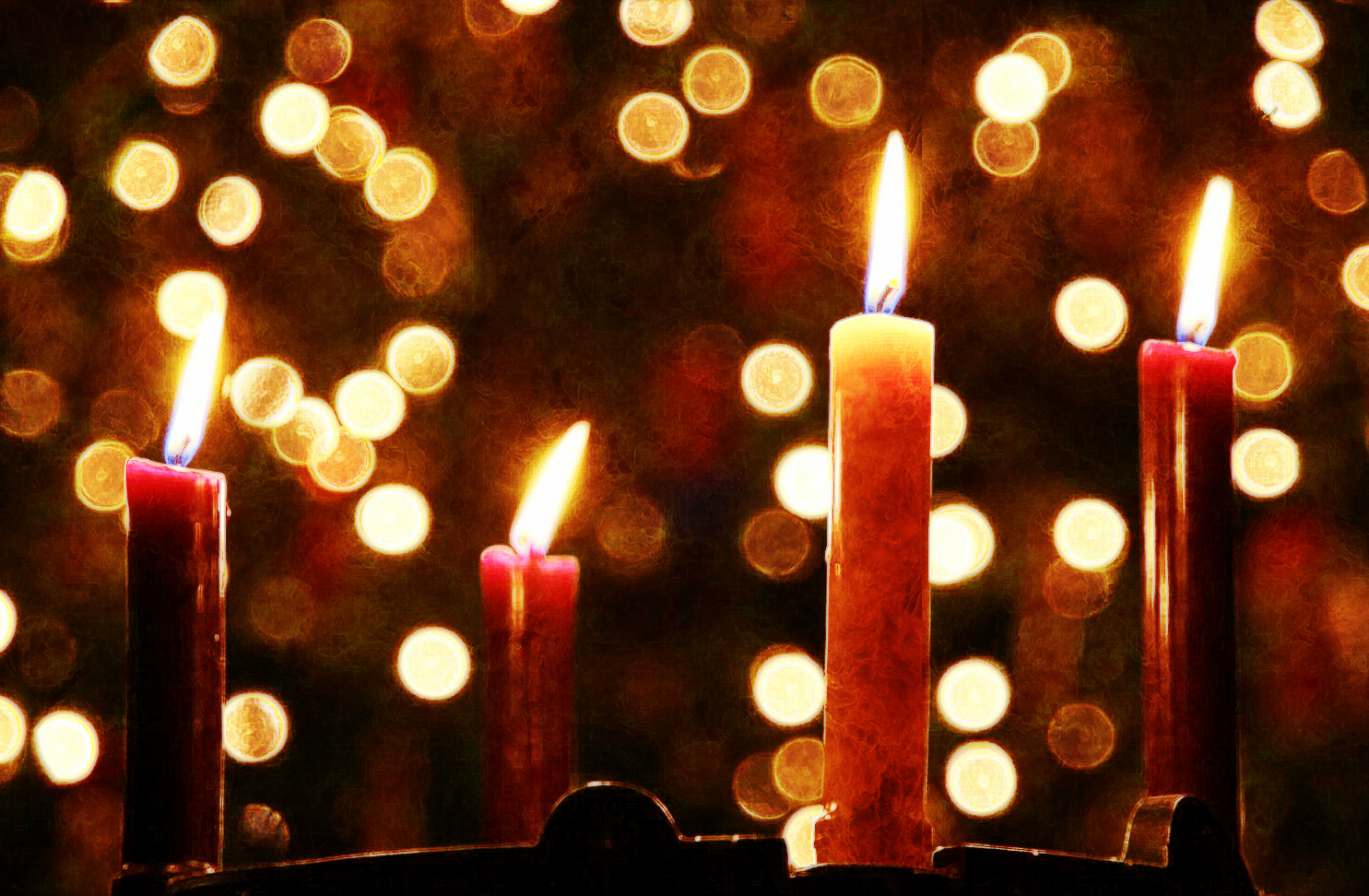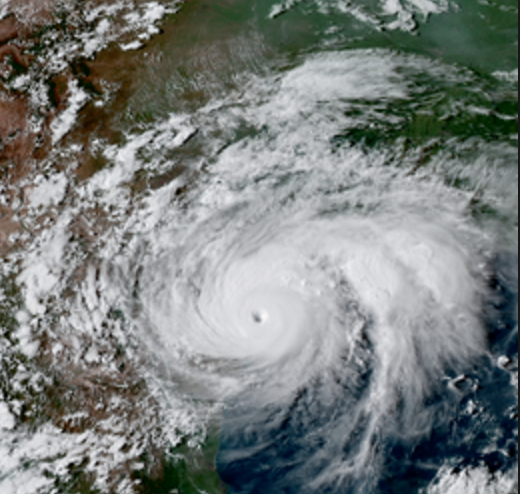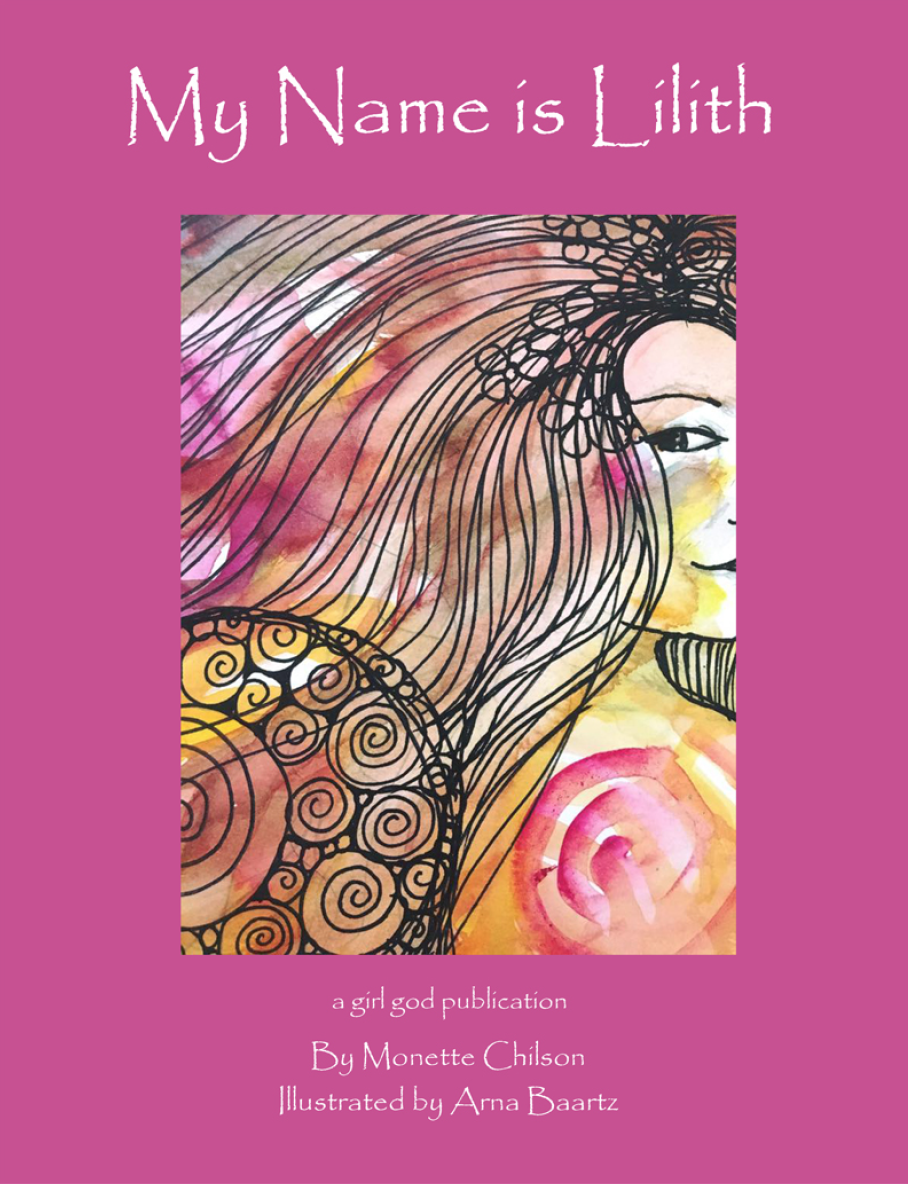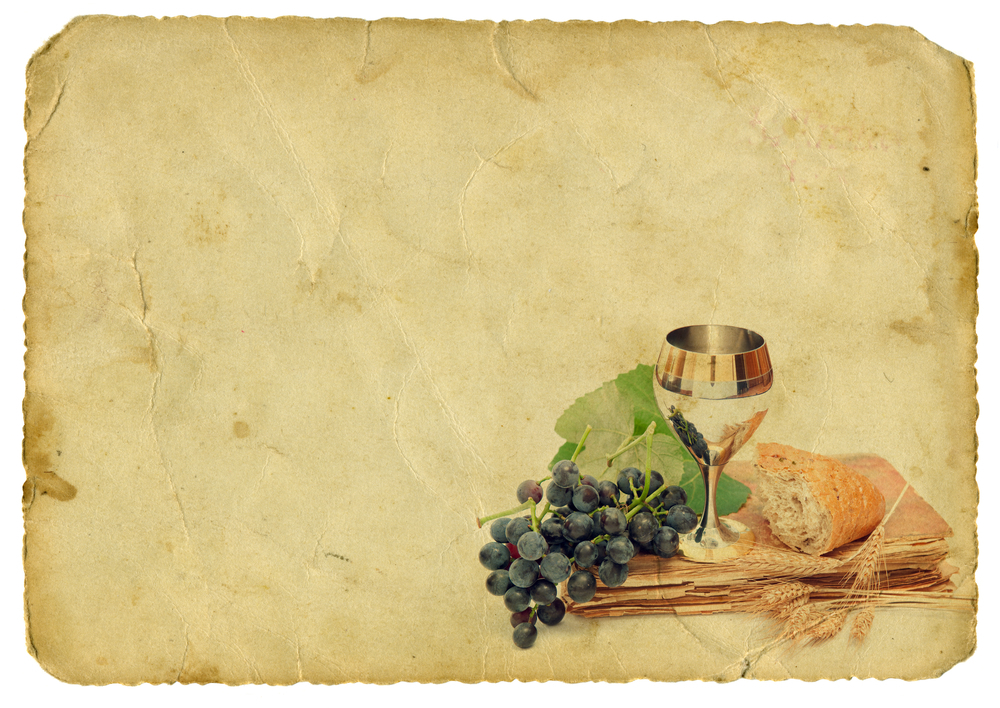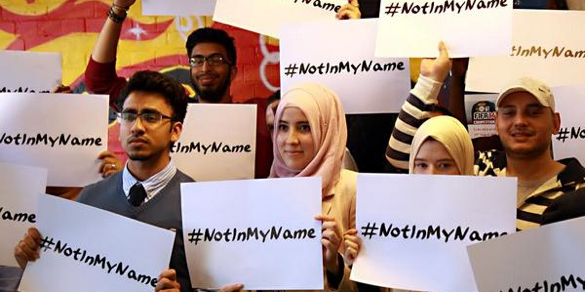Whatever you're celebrating this month, I encourage you to look around in awe at the many ways we connect with something bigger than ourselves. There is beauty in all of it. In embracing the dark of the solstice and the darkness in us. In rededicating ourselves to a sacred path through eight candlelit nights. In celebrating the light of the world being born in the most unexpected place. I have found expanding my spiritual city particularly helpful when dealing with feelings of grief which seem to surface during the holidays, even if your loss is several years old. In the past two weeks I have borrowed practices from Hinduism, Judaism and Christianity to bolster myself. Perhaps it sounds scrooge-like to you to talk of needing to buttress ourselves for merriment. Today I think of it as acknowledging reality. Most of us carry a sadness of some sort with us into this season. Most of us don't always feel joyful and triumphant during December. That doesn't make us Grinches. It just makes us human. So how do we help our hearts grow two sizes bigger when they still feel broken? We get still and we listen. We drop the things that make us crazy. Actually, I've found I can keep doing the things if I drop my unrealistic expectations about them. Set some boundaries for yourself and guard them closely. Christmas cards have always made me crazy—from picking the "perfect" picture to managing to get them in the mail on time (never happens). This year I gave myself one hour. One hour to cull through my photos from the past year, pick a few that had each of us in them, and email them out to my kids for approval (teenagers, if you don't know, are very picky about the photos parents share). I thought there was approximately a 10% chance that they would both give my draft a thumbs up. Lo and behold, they both loved it. I hit send on the order with 10 minutes to spare. I mailed them all out earlier this week and realized I still had a few people on my list. Without sweating the horror of my mistake (I.e, my humanity), I reordered a few extras, on which I will write "Happy New Year" and send them out after Christmas. I am not at all stressed about this turn of events. My other crazy maker? Gifts. Well, not the gifts per se, but my pursuit of perfect presents. Again, I set a boundary for myself (inspired by Glennon Melton who did the same). I decided I would be done with all shopping by the end of the first week of December. I visited a couple of my favorite local shops (Pondicheri and Body Mind & Soul) then started ordering online with abandon. As in, my husband sent me a text asking if my credit card had been stolen. I did not let myself obsess over the possibility of the items going on sale tomorrow. I did not hold out for free shipping. I did not second guess myself. I make a list, and I didn't waste time checking it twice. Like the snafu with the card quantity, I didn't do it perfectly. I realized I had forgotten a couple of folks and joyfully (and quickly) took care of theirs this week. No sweat. And the spiritual practices I mentioned earlier? Two weeks before Christmas, I visited the Houston Ayurveda Center for an abyhanga (hot oil massage) and steam to help myself embody the serenity I hoped to bring to the season. While not exactly Hindu, Ayurveda—yoga's sister science—was born in the deep spiritual soil of India. Each treatment begins with a Sanskrit invocation, bringing a sense of sacred to the experience. A week later, I was blessed to attend The Service of the Longest Night at my home church, Chapelwood UMC. Coinciding roughly with the Winter solstice, this annual gathering reminds us that there is hope in the midst of grief. I have attended every year since my sister Angie died almost three years ago, and it's become a spiritual touchstone of the Christmas season for me. Finally, a poem from the Jewish prayerbook Gates of Prayer made its way to me via my grief support group. An unlikely companion for holiday inspiration, the words remind me of the constancy of grief. But in the simple repetition of "We remember them," I felt the bonds of grief loosening their grip on me. In remembering (rather than suppressing or denying) those we've lost, we can become freer to celebrate with those loved ones still with us. For those of you also struggling with loss this season, I'm including the poem here. Wherever this season finds you, whatever loss that is heavy on your heart, there is still much to celebrate. Notice the celebrations around you, both the familiar and the foreign, for they are all reflections of God. Namaste. Shalom. Merry Christmas.
Whatever you're celebrating this month, I encourage you to look around in awe at the many ways we connect with something bigger than ourselves. There is beauty in all of it. In embracing the dark of the solstice and the darkness in us. In rededicating ourselves to a sacred path through eight candlelit nights. In celebrating the light of the world being born in the most unexpected place.
How to Recenter in Times of Chaos
Acknowledging our own needs in times of crisis does not come naturally to most of us. It feels frivolous in the face of such devastation to admit that we need to collect ourselves. To sit and just be. To realign souls that have been disconnected from their source for too long. But reconnect, we must, for if we don’t, all our good deeds and fine intentions will simply add to the frenetic energy of the wounded around us.
Timely and timeless, this retelling of the story of the world’s first woman in her own voice resurrects a lost feminine archetype in the midst of what is arguably the most powerful uprising of women in recent history. Women looking for the source of their power not found in the temptress/helpmate archetype of Eve, will ind it in this lavishly illustrated picture book, written for children but relevant to the adult work of gender reconciliation and equality. Rooted in the theology and mythology of both Judaic and Christian traditions, this story of a woman demonized for her strength traces gender and the birth of patriarchy back to the dawn of time using the simple language of story rather than theory.
... sometimes I’m so comfortable with my well-cultivated ways that I don’t notice they’re not serving me any longer. I will share my journal entry here, in hopes that it will spark a recognition deep within you of something that needs to change within your own spiritual practice—whether yoga-related or not. It could be your prayer life feel stifling and needs invigoration. Or you sense the need for a more active practice—perhaps walking a labyrinth; a more mystical one—maybe centering prayer; or you want to include more universal language in the ways you address God.
As Christians we are called to love one another above all else, but what happens when we unwittingly bring in elements that illicit feelings of exclusion, rather than loving inclusion, among those at our worship services? Monette Chilson explores two practices with the potential to ostracize and calls us to reexamine them.
An extremely small percentage of the world’s Muslim population recognizes ISIS as having any sort of authority over their lives. In other words, being Muslim does not equate with ISIS affiliation. We need to stop acting as if the two are interchangeable and start acting out of love, rather than from hate or fear. Jesus said, “Your love for one another will prove to the world that you are my disciples” (John 13:35). If there is no love, there is no Christianity. Period. There is just an empty label that leaves the world seeing us in ways that will make you cringe.

